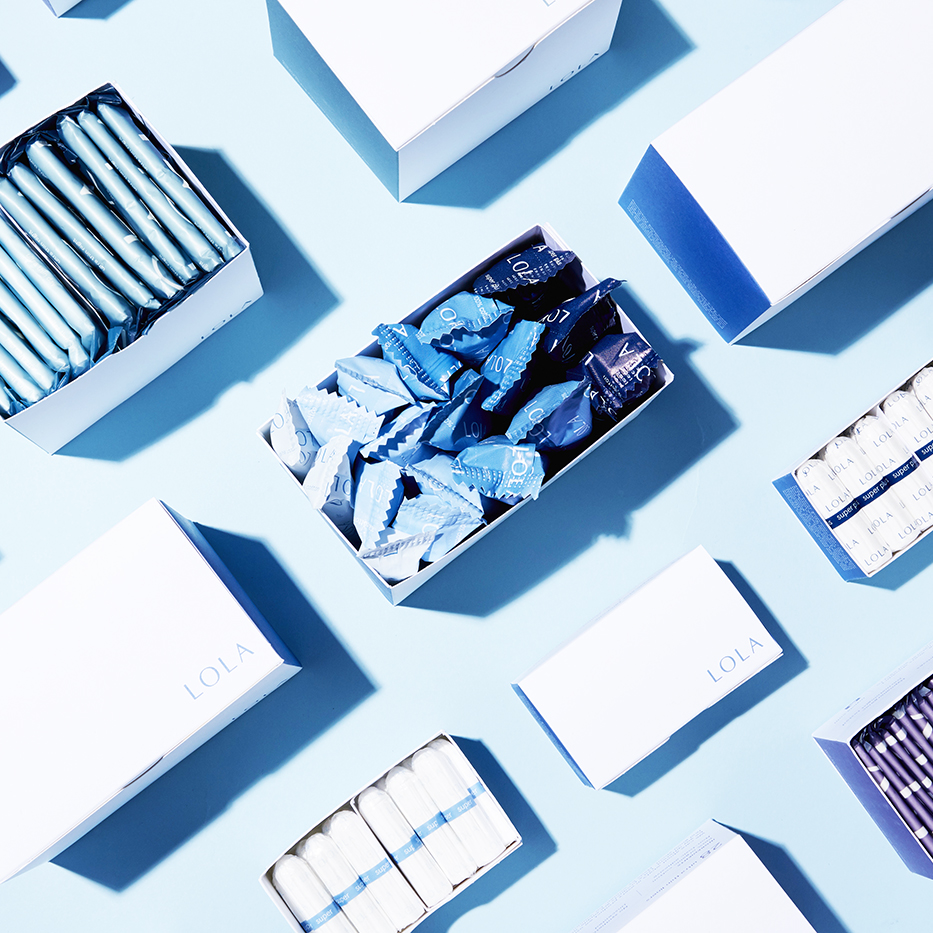2 Years Ago, These 2 Women Started the Tampon Revolution


Exactly two years ago, I took a meeting with Jordana Kier and Alex Friedman out of sheer curiosity. The pair was making the initial media rounds for a new tampon startup called Lola, which appealed to me mainly as a subscription delivery service. (No more late-night emergency runs to the CVS feminine care aisle? Sold.)
But minutes into my chat with the pair of 20-something founders, it became quite clear that they were onto something far more consequential than sheer convenience. While looking into manufacturing their product, Friedman and Kier discovered that no one could definitively identify some of the chemicals in a variety of brand-name tampons—ultimately shedding light on how little the FDA regulates this highly intimate (and highly necessary) health product. Lola would be different, they decided—and two years since they launched their company on that M.O. of transparency, it's only one of the many ways Friedman and Kier have upended an industry in sore need of disruption.
"While we did recognize at the time that it was a game-changing idea to introduce a feminine care company for women, by women (especially in an industry where most large legacy brands are helmed by men), we didn't anticipate the scale of impact we'd have on destigmatizing the topic of menstruation and initiating a national conversation on the importance of knowing what's in your products," Friedman tells me now.
In fact, when Lola was still in its fledgling stages and the pair was working with focus groups, they were struck by how hesitant women were to even talk about their periods. "But," Kier recalls, "two things happened: First, once women started talking, they often didn't want to stop. Until recently, women have never been given an opportunity, or never thought they wanted an opportunity, to talk about their periods—but that's not the case. Second, women realized they had never stopped to question what their tampons were made of. Once they were conscious of that lack of transparency, they realized they deserved more and wanted to switch to all-natural products. They left that day wondering why it didn't already exist." So did Kier and Friedman—and the decision to create organic, 100% cotton tampons was born.
Even as the company continues to expand and evolve at a breakneck pace—not to mention that Lola's success has invited many imitating startups to crowd this particular corner of the market—its every move is grounded in this philosophy of opening up the conversation about menstruation and female health at large—to establish a new normal. The brand's blog, The Broadcast, covers everything from the benefits of water births to mindfulness exercises to the best underwear for every kind of vagina. Lola Gives Back, the company's philanthropic initiative, has donated more than 500,000 feminine care products to homeless and low-income women, domestic violence survivors, and foster care children across the country to date.
We believe that open discussion about menstruation will always be a step in the right direction.
Most recently, Lola launched a First Period Kit ($34) complete with feminine products, user-friendly instructions, and an e-book. "Puberty can be awkward, but periods shouldn't be," Kier explains. "[The kit] offers smart, honest content to help girls learn about their changing bodies, feel prepared for their first period, and learn what works best for them."
It's a way to prime young girls to feel confident and open about their bodies—a topic that, even for many adult women, still feels relatively taboo. But though Friedman and Kier have certainly helped facilitate this particular change in conversation, it's also part of a larger trajectory in which women everywhere are wielding their power as consumers to take charge of their health.
Consumer research estimates that females drive 70% to 80% of purchases across all markets, and wellness is currently one of the fastest growing industries in the world, valued at $3.72 trillion in 2015 (a nearly 11% increase from 2013). Nielsen reports that in 2016, American customers bought more organic food than ever before, and "clean" labeling—that is, certifications from organizations like the Environmental Working Group and Leaping Bunny to denote a product free of questionable ingredients—is more rampant than ever before. From our general conversation to our spending habits, it's apparent that we're stepping into the golden age of consumer transparency.
And as they look toward Lola's future, Friedman and Kier aren't riding this wave—they're intent on continuing to steer the current. "We believe that open discussion among women (and men!) about menstruation—whether the topic is menstrual care access equality, increased transparency regulations, or the tampon tax—will always be a step in the right direction," says Kier. "Our hope is that by breaking down stigmas around menstruation, we're opening the door for women to discuss other previously 'taboo' topics without being afraid."
Next up: Learn about the life-changing magic of saying no.
This article is provided for informational purposes only and is not intended to be used in the place of advice of your physician or other medical professionals. You should always consult with your doctor or healthcare provider first with any health-related questions.

